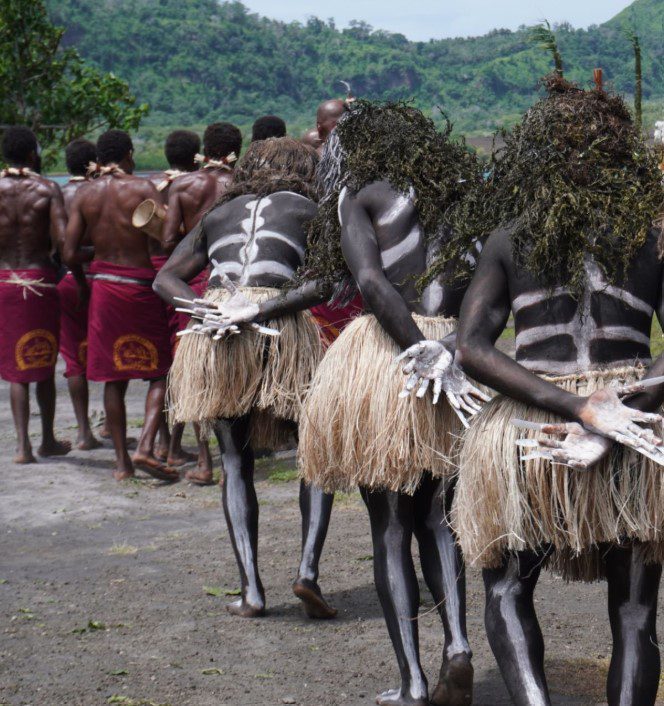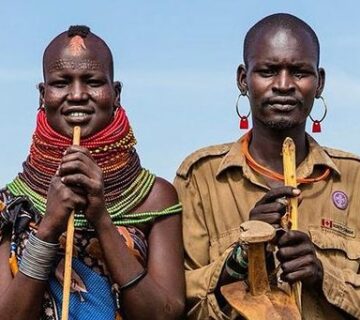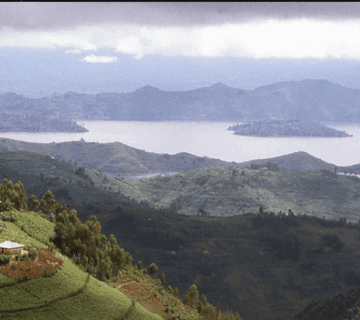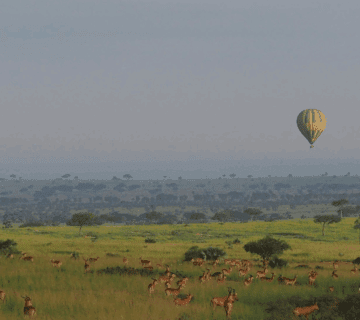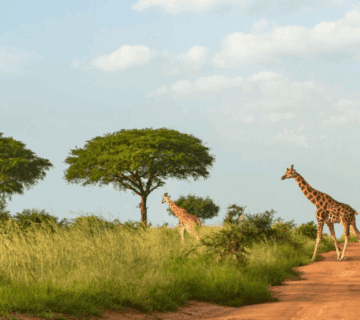What Are the Best Cultural Festivals in Uganda?
Uganda is a country of deep-rooted traditions, where culture and heritage are celebrated with passion and pride. From the rhythmic beats of drums to the vibrant dances and the rich history that is passed down through generations, Uganda’s cultural festivals are a testament to the country’s diverse and fascinating cultures. These festivals offer an opportunity for both locals and visitors to experience the heart of Uganda’s heritage, as they celebrate their traditions, customs, and art forms.
In this post, we’ll explore some of the best cultural festivals in Uganda that provide an authentic and immersive experience into the country’s cultural fabric. Whether you’re a history buff, a lover of music, dance, or just looking to engage with local traditions, these festivals are bound to leave you in awe and give you a deeper appreciation for Uganda’s vibrant cultural heritage.
1. Nantawetwe Festival
Held annually in the central region of Uganda, the Nantawetwe Festival is one of the most iconic celebrations of Ugandan culture. This festival is dedicated to showcasing the customs, traditions, and values of the Baganda people, the largest ethnic group in Uganda.
Nantawetwe is a celebration of the harvest, particularly the significance of bananas (matoke) in the local community. The festival is a blend of both traditional and modern performances, with cultural dances, music, storytelling, and food. Visitors are treated to an exciting display of Ugandan customs, where you can even take part in traditional cooking lessons, enjoy indigenous dishes, and learn about the ceremonial dances that have been passed down for generations.
The Nantawetwe Festival is not just a visual feast; it’s a wonderful way to connect with the Baganda people, understand their spiritual beliefs, and immerse yourself in their way of life. It’s an excellent opportunity to experience Uganda’s unique farming culture and witness how deeply agriculture is intertwined with the country’s social and cultural practices.
2. Ekitaguriro Festival
The Ekitaguriro Festival is a vibrant celebration of the music, dance, and drama of the Banyankole people, an ethnic group from southwestern Uganda. The festival typically takes place in Mbarara, the heartland of the Banyankole, and features live performances of traditional music, including the famous Bakisimba dance, which is accompanied by drumming and chanting.
Ekitaguriro is more than just an event; it’s a gathering of the Banyankole community where the youth are encouraged to learn their traditions, dance, and music. It is an important platform for passing down knowledge and connecting younger generations with the cultural practices of their ancestors.
Aside from the thrilling performances, the festival also provides a unique opportunity to engage in traditional ceremonies and observe the daily lives of the Banyankole people. Whether you are interested in the dramatic storytelling, the energetic dances, or simply enjoying the warmth and hospitality of the people, Ekitaguriro is an unforgettable cultural experience.
3. Uganda Martyrs Day
Uganda Martyrs Day is one of the most significant cultural and religious celebrations in Uganda. Held annually on June 3rd at the Namugongo Martyrs Shrine, this festival commemorates the martyrdom of 22 Catholic and Anglican missionaries who were killed in the late 19th century for their faith.
While Uganda Martyrs Day is deeply rooted in religious history, it is also a cultural event that brings together people from all parts of the country to honor those who gave their lives for their beliefs. Thousands of pilgrims travel to Namugongo every year to pray, reflect, and partake in the celebrations, which include processions, masses, traditional dances, and cultural performances.
The festival is a powerful reminder of Uganda’s history and the resilience of its people, highlighting themes of faith, sacrifice, and unity. For visitors, it’s a chance to explore the spiritual side of Ugandan culture, experience local traditions, and witness the sense of community that is at the core of Ugandan identity.
4. The Kwanjula Ceremony
The Kwanjula is a traditional Ugandan wedding ceremony that is a rich cultural experience, particularly for the Baganda people. The event is a celebration of the union between two families, and it’s filled with colorful customs, music, and rituals. Unlike a typical wedding, the Kwanjula is a deeply symbolic event where the groom’s family goes to the bride’s family with gifts and requests permission for marriage.
This ceremony is usually held in the presence of both families, close friends, and community members. The Kwanjula provides an insightful look into the customs and values that shape Ugandan family life, and it’s a wonderful chance for visitors to understand the social dynamics and importance of family in Ugandan culture. The ceremonies often feature traditional dances, songs, and elaborate costumes, which provide a striking visual display of Ugandan heritage.
Attending a Kwanjula ceremony is an excellent way to gain insight into Ugandan customs surrounding marriage, family relationships, and the cultural significance of unity.
5. Toro Kingdom Cultural Festival
Toro Kingdom, located in the western part of Uganda, celebrates its cultural heritage with the annual Toro Kingdom Cultural Festival. This festival brings to life the traditions of the Batooro people, one of the most prominent ethnic groups in Uganda. The festival is an opportunity to experience the cultural history of Toro, including the kingdom’s rich monarchy, its ceremonies, dances, music, and art.
One of the highlights of the Toro Kingdom Cultural Festival is the ceremonial coronation of the king, which draws crowds from all over Uganda. The event also features traditional dances, storytelling, and food that reflect the daily life and rituals of the Batooro people. It is a celebration of their history, language, and traditional governance, as well as an opportunity for the community to come together and pass on these cultural practices to younger generations.
For visitors, attending the Toro Kingdom Cultural Festival is a wonderful way to explore Uganda’s royal heritage and learn more about the rich traditions that continue to thrive in the region.
6. The Nyege Nyege Festival
While most cultural festivals in Uganda celebrate the country’s traditional roots, the Nyege Nyege Festival offers a contemporary twist, blending modern music with Ugandan cultural experiences. Held annually in Jinja, this four-day festival is a lively celebration of music, art, and dance, featuring both Ugandan and international artists.
Nyege Nyege is a unique festival that showcases Uganda’s youth culture and their growing influence on the music scene. The festival has become a popular gathering for people from all over the world, with music genres ranging from electronic dance music (EDM) to traditional Ugandan rhythms. It’s an exciting festival for those who enjoy the fusion of modern beats with traditional Ugandan sounds and an excellent way to experience the vibrancy of Uganda’s urban culture.
Despite its modern vibe, Nyege Nyege retains a cultural essence, offering workshops, performances, and exhibitions that highlight Ugandan art, fashion, and crafts. It’s an ideal festival for those seeking an energetic, diverse, and fun-filled cultural experience in Uganda.
7. Kabaale Festival
Located in the western region of Uganda, the Kabaale Festival celebrates the cultural heritage of the Bakiga people, who are known for their strong agricultural traditions and lively dance performances. The festival is a lively event that features traditional drumming, dance, music, and displays of local foods, handicrafts, and games.
Kabaale is a celebration of rural life, where visitors can experience the warmth of Bakiga hospitality and immerse themselves in the daily activities that sustain the local community. The festival is also a chance to learn about the Bakiga’s customs, their agricultural practices, and their traditional arts, which play an important role in their identity.
For travelers looking to connect with rural Uganda and enjoy a more intimate cultural experience, the Kabaale Festival is a must-visit.
Conclusion
Uganda’s cultural festivals offer something for everyone, whether you’re interested in ancient traditions, religious celebrations, or the vibrant creativity of the youth. These festivals not only allow you to witness the rich cultural heritage of Uganda but also provide an opportunity to engage with local communities, share experiences, and celebrate the diversity that makes this country so unique.
So, if you’re planning a visit to Uganda, make sure to time your trip around one of these remarkable cultural festivals. You won’t just be a spectator – you’ll be part of the living history, experiencing Uganda’s spirit and soul firsthand.

